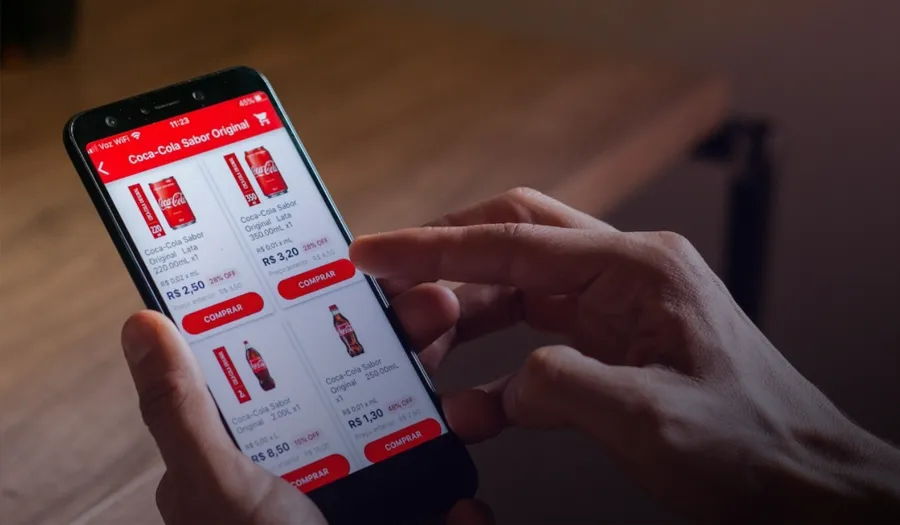Discovering Tableau: a step-by-step implementation guide
In the fast-paced world of data analytics, having tools that simplify the understanding and presentation of information is essential. In this...
Have you ever heard the phrase "Data is the new gold"? You've probably heard it, and it's clear that today, records that seem to be simple information alone actually have a massive impact on companies in terms of money, security, time, value, etc.
It's clear that data is the most valuable asset of companies, so handling large volumes translates into multiple benefits, right? Well, not necessarily.
Having millions of data points by themselves doesn't give you any value; the detail lies in being able to turn this data into valuable and actionable information. For obvious reasons, large companies are not immune to this need for data transformation, and this is where Tableau comes into play.
In this article, you will find Success Stories of Major Companies that have leveraged the power of Tableau to drive decision-making, increase efficiency, and foster a data-driven culture.
Table of contents
Nissan Case Study: Data Unification
AeroMexico Case Study: Dashboards
PepsiCo Case Study
Garanti BBVA Case Study: Information Silos
Sony Music Case Study: Marketing
Conclusions: The Transformative Impact of Tableau
>> I want to know more about: What is Tableau? <<
Nissan, a global automotive giant, sought to consolidate and democratize access to information across all its branches and teams to foster collaboration through unified access to information.
Using Tableau, Nissan managed to provide access to the same information across all areas of the company, from headquarters to retail stores and supply chain teams.
The company was able to analyze data efficiently to improve its product offerings, adjust its business processes, and redesign employee and customer interaction.
This holistic approach not only enhances decision-making but also creates a data-driven organizational culture that drives innovation and efficiency, resulting in significant savings and more agile and effective decision-making.
>> The perfect recipe for a clean HubSpot Database <<
AeroMexico, an airline based in Mexico City, operates over 600 flights daily, with a network reaching over 80 cities worldwide and owning more than 120 aircraft.
Previously, AeroMexico handled data from various sources and in various formats. Much of the analysis was done in raw Excel files, limiting the information those data could provide.
Now, with Tableau, teams create dynamic dashboards that allow them to handle large amounts of data "practically with a single click." A Tableau dashboard is a collection of views that allows you to compare a wide variety of data simultaneously. For example, if you have a set of views that are reviewed every day, you can create a dashboard where all the views are shown at once, instead of navigating through different worksheets. Tableau enables AeroMexico to:
This capability not only improved efficiency in error detection but also provided a clear view of operational processes.
PepsiCo, a leader in the food and beverage industry, faced the challenge of generating reports quickly and efficiently.
Converting this data was a challenge, and report generation could take months. Analysts knew that the ability to quickly standardize data across all retailers and speak the same language as their customers was crucial. Only then could they prepare data more quickly for forecasting and planning.
The team mainly relied on Excel for analysis, creating large amounts of messy data. Additionally, they did not have an effective way to detect errors, leading to potentially costly results. For example, simply missing a product in a report could lead to inaccurate forecasts and revenue loss.
PepsiCo adopted Trifacta, a Tableau partner, with the aim of converting disparate data and incorporating it into Tableau for forecasting and analysis. Thanks to Trifacta, PepsiCo's CPFR team reduced PepsiCo's comprehensive analysis runtime by up to 70%. And, with Tableau, PepsiCo reduced report production time by up to 90%.
The implementation of Tableau reduced report generation time, giving them a competitive advantage in data analysis. This agile capability not only allowed them to quickly find and address issues but also significantly improved customer service and resulted in substantial savings.
Garanti BBVA: Information silos
Garanti BBV, founded in 1946, is the second-largest private bank in Turkey, with consolidated assets of approximately TRY 385 billion (USD 84.3 billion), and as an integrated financial services group, it operates in all segments of the banking sector.
In 2017, it undertook the ambitious project of converting all its 900 traditional banking location branches into digital customer service centers in just 18 months. To manage this change effectively, Garanti BBVA used Tableau to eliminate internal data silos and create a single source of truth across the organization.
Before Tableau, there was no centralized business intelligence and data analysis function in the bank. Different databases and BI tools were used, and data was fragmented into multiple local silos, making it very difficult to see the full picture.
With the implementation of Tableau, employees at all levels were able to access and visualize project data, consult KPIs, and meet their analysis needs independently.
Sony Music: Marketing
Thanks to increased reporting effectiveness and interactive data visualization, marketing specialists can quickly find details and new information to improve their strategies. Marketing and Tableau can be a very powerful combination.
A clear example of this is Sony Music, one of the leading record companies, which radically changed its business through music streaming and the volumes of data they collect thanks to it.
Imagine, a company with millions of users sharing their musical tastes and a lot of really valuable information. With so much data available, Sony has gone beyond conventional tools to improve analysis and optimize its marketing strategies.
Sony Music has explained how Tableau significantly reduced the task of report generation despite the large increase in data volumes. Likewise, visual dashboards have helped them obtain information that allows them to increase revenue and implement more efficient marketing strategies.
For Sony, the most important advantage of Tableau is that many of its collaborators and colleagues can now focus on creatively interpreting the numbers, rather than creating reports and dealing with the data themselves. In addition, it is a tool that allowed them to quickly try out different things; interact with the data and manipulate the amount of information they have.
Conclusions: The transformative impact of Tableau
These Success Stories of Major Companies exemplify how Tableau goes beyond being a business intelligence tool; it becomes a catalyst for change and efficiency. The ability to transform data into informed decisions has allowed these companies not only to survive in a competitive business environment but to thrive and lead in their respective industries.
By adopting Tableau, these organizations have not only improved their analytical capabilities but also cultivated a data-driven organizational culture that is the key to sustainable success in today's business world.
Interested in learning more? I invite you to explore our related articles section. Additionally, feel free to subscribe to our newsletter for relevant information.

In the fast-paced world of data analytics, having tools that simplify the understanding and presentation of information is essential. In this...

SaaS, or its translation "Software as a Service," is a software delivery model where applications are provided to users over the internet. Instead of...

Coca-Cola is undoubtedly one of the most recognized brands in the world, with a market presence that dates back to its beginnings in 1886 when John...